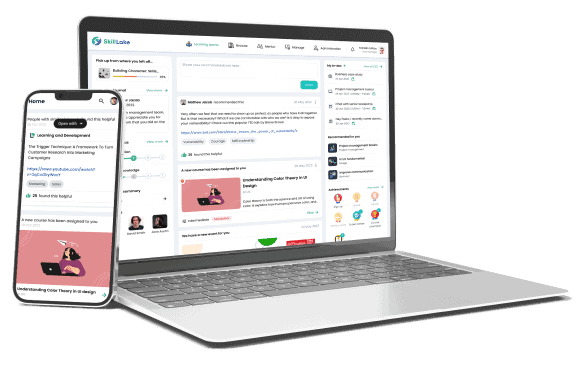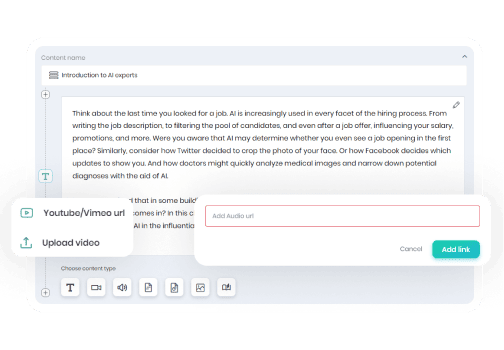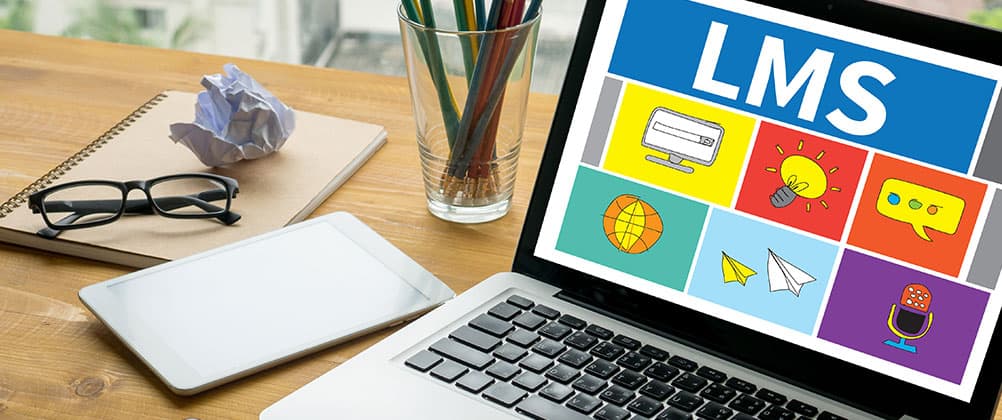LMS for Healthcare: The Ultimate Guide

Continuous education, regular training, and skill improvement are vital for healthcare practitioners. Healthcare businesses use numerous training methods to deliver the best possible service and stay up-to-date with the newest and most relevant treatment techniques. One of the most efficient means is an LMS for healthcare.
An LMS in healthcare helps businesses in a variety of ways, including streamlining hospital staff and medical professionals, helping learners to study anywhere, at any time, allowing them to respond rapidly to changes in training demands and trends, and providing a variety of tools that help professionals assess their efficiency.
Challenges are ubiquitous in healthcare, ranging from workforce development to enhancing treatment quality and outcomes in large and small medical institutions. Managers and other healthcare leaders’ efforts to use training strategically to develop staff abilities are thwarted by structural obstacles, rapidly changing government laws, technology advancements, and patient expectations. These have created a new climate in which maintaining a medical practice is no longer only about treating patients.
How does LMS in Healthcare address key challenges in staff development and retention?
1. Increase Engagement, Reduce Turnover
One unresolved issue is the need for a more tailored approach to people development. To retain top talent, one must transform people’s feelings about their jobs. If used to promote a culture of learning, have more self-directed growth, and instead, give promotion chances for individuals. Technology may be a constructive component of engaging staff.
2. Bridge the Training Gap
Employees with insufficient training may become irritated and perplexed about their work responsibilities. In-house training is more limited, with less than half of the workforce indicating they might benefit from training in other areas.
3. Foster a Culture of Learning
Poor culture is a hassle, with nurses citing it as a problem compared to other healthcare professionals.
4. Empower Learning in a Busy Environment
Conflicting educational objectives range from achieving regulatory and certification standards and continuously improving results to recording competency at scale and employing technology as strategically and broadly as possible for training and education. In addition, given the current state of the healthcare workforce, there is a pressing need to reduce time to competency.
5. Lack of Mentoring
25% of healthcare employees believe their organization provided insufficient mentoring. Only 37% of employees said their firms offered the opportunity to mentor others, compared to 59% of employers. This disparity shows that mentoring possibilities exist but are not widely acknowledged.
LMS for Healthcare: Solving Training & Retention Issues
Healthcare is a constantly changing sector. The norm is to adopt new medical practices, compliance standards, and technologies. To keep up with these advances, medical practitioners must upgrade their abilities with a healthcare training LMS to scale their learning to hospital employees and respond quickly to new medical training demands.
1. Support for Instructor-Led Training
LMS provides excellent support for the classroom and instructor-led training. It enhances learning by providing new inputs, research, data, peer reviews, and up-to-date information that traditional approaches do not always cover.
2. Single Window strategy
An LMS solution offers an integrated view of numerous activities across the healthcare spectrum. The learning management system centralizes compliance management and serves as a knowledge library for skill evaluation and development, onboarding and talent management, certification, testing procedures, SOPs, and patient management.
3. Ensures Training Consistency
Regular training for healthcare professionals can help them stay informed and recall overlooked facts. Through an healthcare LMS, exceptional learning experiences are delivered consistently to the workforce.
4. Versatile learning experience
Healthcare professionals find it difficult to attend sessions routinely; hence, they require flexibility in their training schedules. Therefore, they look for a learning approach that helps to create timetables. Learners can use mobile learning, start their courses whenever they choose, and finish them at their own pace.
5. Reduced learning time
Employees don’t have to take their time away from work when using an LMS for healthcare. It allows your institution to train multiple employees, rendering our system useful in hospitals/clinics where workers work in shifts.
6. Facilitates compliance
One of the most regulated businesses, healthcare, undertakes training to educate personnel on health rules and regulations. Therefore, one may be confident that employees will be ready to satisfy regulatory criteria when using a cloud-based LMS.
7. Assists in Analytics and Reporting
Modern LMS for healthcare now have analytics and reporting features that allow you to track learner progress and communicate the results via built-in reports. For example, learning technology aids in determining how many healthcare personnel finish the necessary training, how well they perform, and whether they match industry standards. The LMS also creates automated reports that show how well the results meet the training objectives.
8. Content authoring
One can quickly design and update healthcare courses on the LMS to maintain their compatibility with current healthcare trends and regulations. Also, it enables the upload of third-party training content into it.
9. Gamification
Gamification uses game-design features in non-game settings, such as granting learners credits for completing courses or an achievement badge for passing the quiz on the first try.
10. Cloud deployment
Could-based systems are made available via the Internet. One can open your browser and type in the required address, eliminating the need for updates and maintenance, as the provider handles everything.
11. Saves costs
Remove or significantly cut learning management costs and the costs of offline instructors and physical classrooms with learning automation and remote training.
How can Skill Lake assist your organization?
Skill Lake provides unique healthcare workforce solutions incorporating machine learning, artificial intelligence, and augmented and virtual reality. Our system allows you to conduct healthcare staff assessments, deliver tailored education, and address long-standing clinical workforce challenges.
Skill Lake analyses skill gaps and promptly assigns training based on business requirements. This learning management system enables the organization to adjust training requirements in response to changes in company strategy. Skill Lake’s overall learning retention is superior to other learning frameworks. You get to assign periodic examinations and assignments by instructors and mentors to track and evaluate knowledge retention.
Using our LMS for healthcare is the most effective approach to training personnel on uniform regulations and system upgrades, tracking all employees, and providing individually tailored and personalized content for each of your learners. With Skill Lake, unlock your organization’s full potential today!

Contact our experts for a walkthrough of Skill Lake LMS.
Build a culture of continuous learning with Skill Lake’s state-of-the-art people development platform. Give your employees professional training to help them excel in their job roles and propel your business to greater efficiency and success.
Start Today


Ashmitha Chatterjee
Ashmitha is a learning and development enthusiast who shares her insights on e-learning. She loves to create engaging and informative content and is dedicated to helping people learn and grow through her deep expertise in the field.